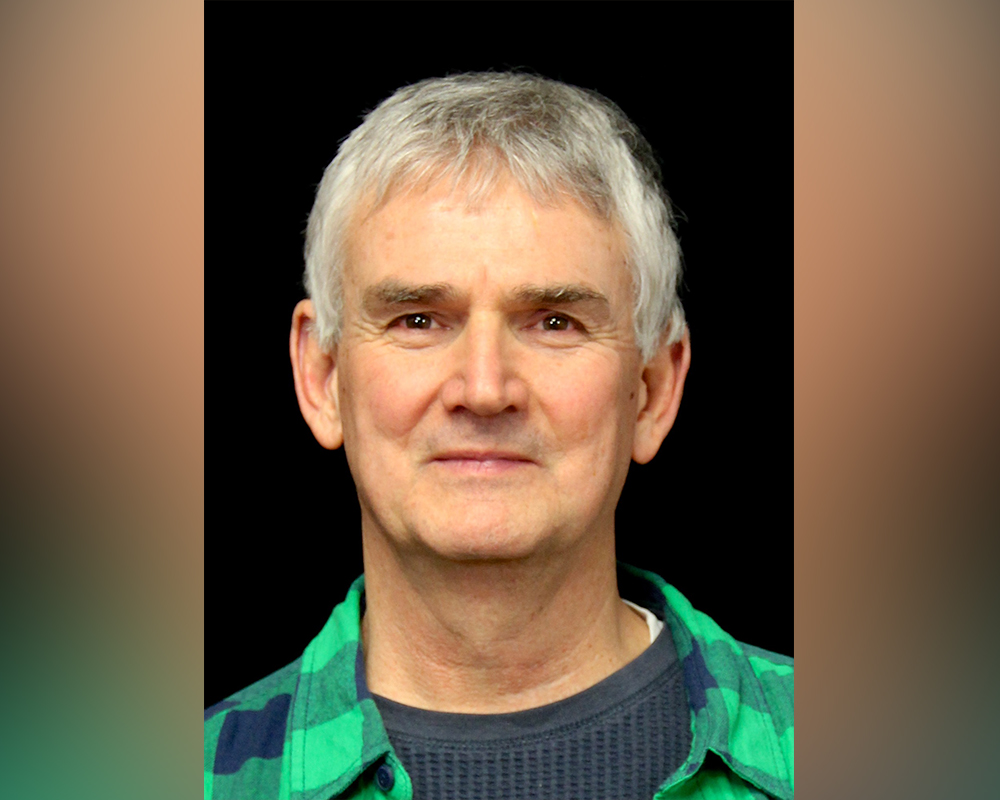When criminology and criminal justice professor Ray Paternoster walked into class, he often came in the same way: sporting green Converse sneakers, a T-shirt and a “raggedy button-down,” said Katie Frey.
“He’s one of the smartest people I ever knew,” said Frey, a criminology and criminal justice doctoral student. He was always cheerful, she added, and never without a snarky joke to tell.
Paternoster, who had worked at the University of Maryland since 1982 and became a professor in 1990, died Sunday morning. He was 65. He had been diagnosed with pancreatitis and was in the hospital since Dec. 15, according to a blog post written by his wife, Ronet Bachman. “He is no longer in pain,” she wrote in a blog post Sunday. “We are not yet OK, but I have faith that we will be one day.”
At this university, Paternoster was known for teaching CCJS200: Statistics for Criminology and Criminal Justice. His areas of interests included criminological theory, offender decision-making and issues related to capital punishment, according to his university bio.
He was also the principal investigator of a 2003 study that found Maryland prosecutors were more likely to seek the death penalty in cases involving black suspects accused of killing white victims than in cases involving blacks killers of black victims or white killers of any victim. In 2014, he coauthored another study that found that almost half of black men and 40 percent of white men nationally get arrested by age 23.
Sally Simpson came to this university in 1989 as a junior faculty member and developed a close relationship with Paternoster and his family. The research paper she and Paternoster published together has been the “most cited paper in my scholarly career,” she said.
Their relationship quickly evolved from coworkers to friends. Simpson got to know Bachman before Bachman married Paternoster, and both women had their children at about the same time, so the families would meet for playdates, she said.
After Paternoster and his family moved to Delaware a few years ago, Simpson said she didn’t see them as often, but they reunited about a week ago when she visited him in the hospital.
“He was a colleague and a friend,” Simpson said. “He had an ebullient personality, [and] he was so joyous in his life.”
Since Paternoster was hospitalized the night of Dec. 15 — just hours after the department’s holiday party, which he attended — Simpson has walked by his closed office every morning as she arrives to work, a “daily reminder that he was not well, that he was in the hospital and now he’s gone,” she said.
“You can feel the hole,” Simpson said. “To lose somebody who was so vital, whose energy was so high, it’s unconscionable.”
Frey said she’d known Paternoster since 2010. When she was accepted to this university as a potential doctoral student, she was not given any funding and said she likely wasn’t going to attend. But after meeting Frey at a new student orientation, Paternoster “ended up fighting for me to get funding,” said Frey, who became a teaching assistant for his statistics course during the 2010-11 academic year.
In the criminology department, Paternoster was known for his love of dogs. Any time someone brought their dog to work, he was probably rolling around on the floor petting it, Simpson said.
“When the dogs were here, they would know Ray was around, and they would ignore everybody else to get his attention,” she said. “Honestly, students flocked around him too.”
Students and other members of the campus community expressed their grief on social media after hearing about Paternoster’s death.
“Just heard some truly sad news. My dissertation chair, Ray Paternoster, passed away. So sad. We lost a great man, and the field lost a giant,” wrote Bret Bucklen, a criminology and criminal justice doctoral student, in a tweet Sunday.
Junior psychology major Jordan Costa also called Paternoster “a staple in the CCJS community here at UMD” in a tweet Monday morning, including a turtle emoji to help commemorate her former teacher.
Paternoster was “the only one that could make stat bearable,” Costa wrote. “We’ll miss you.”
Before joining this university’s staff, Paternoster was an assistant professor at the University of South Carolina from 1978 to 1982. He received a bachelor’s degree from the University of Delaware, a master’s degree from Southern Illinois University and a doctoral degree from Florida State University.



